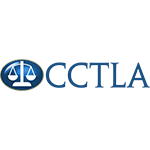What is whistleblower retaliation?
Whistleblower retaliation can incur liability and severe penalties under state and local laws, but this does not always deter employers. If you are facing retaliation from your employer after blowing the whistle, you may be entitled to recover substantial compensation.

Quick Links
Blowing the whistle on an employer can jeopardize the whistleblower’s job, reputation, and standing in the community. Although whistleblowers can be awarded significant compensation, most whistleblowers are motivated by a desire to do the right thing.
Both state and federal laws prohibit retaliation against whistleblowers, but this unfortunately does not stop it from occurring. As much as 74 percent of employers retaliate against whistleblowers. The experienced California whistleblower attorneys at Cutter Law P.C. helps whistleblowers hold these employers accountable.
Actions That Constitute Whistleblower Retaliation
Any action by your employer that interferes with your work conditions may constitute whistleblower retaliation. Such actions may include but are not limited to the following:
- Termination
- Demotion
- Suspension
- Threats
- Harassment
- Failure to promote
- Denial of training opportunities
- Unfair performance evaluations
- Any other form of discriminatory conduct
If a reasonable preponderance of the evidence indicates an adverse action has been applied in retaliation to whistleblowing, the burden of proof is on the employer to prove the action would have occurred without the employee having blown the whistle.
Who qualifies for whistleblower protection?
Anyone who qualifies as a whistleblower under federal or state law is entitled to protection. Employees protected under the Federal Whistleblower Protection Act:
- Federal employees
- Employees of federal contractors, subcontractors, grantees, and subgrantees
The Sarbanes Oxley Act (SOX) provides whistleblower protection to employees of publicly traded companies.
The SEC Whistleblower Program (U.S. Securities and Exchange Commission) provides whistleblower protection to employees who report violations of federal securities laws.
The California Whistleblower Protection Act provides whistleblower protection to the following:
- Current and former state employees and appointees
- State court employees
- The University of California employees
- California State University employees
California Labor Code § 1102.5 protects all California employees, public and private, who blow the whistle on their employers.

Protected Disclosures
According to the Office of the Inspector General, the Whistleblower Protection Act protects any of the following information an employee reasonably believes to be true:
- Violation of laws or regulations
- Gross mismanagement or waste of funds
- Abuse of authority
- Substantial and specific danger to public health or safety
Complaints filed to the following authorities may qualify as protected disclosures:
- Office of the Inspector General
- An internal supervisor or other designated person
- The Government Accountability Office
- Members of Congress
- A federal employee with contract or grant oversight authority
- A law enforcement agency
- A court or grand jury
The state of California considers the following disclosures to be protected:
- Violations of a state or federal statute
- Violations or noncompliance with local, state, or federal regulations
- Unsafe working conditions or practices
California employers may not do the following:
- Adopt or enforce policies that prevent employees from blowing the whistle
- Retaliate against whistleblowers
- Retaliate against employees who refuse to participate in activities that would result in violations of federal or state statutes and regulations
- Retaliate against employees who exercised their rights as whistleblowers during previous employment
The following activities are protected:
- Filing an appeal, complaint, or grievance
- Helping someone else file an appeal, complaint, or grievance
- Cooperating with or disclosing information to the OSC or Inspector General
- Refusing to obey an unlawful order
What are the remedies for violating whistleblower protection laws?
Whistleblowers can generally file a civil lawsuit against employers that retaliate, with varying damages available based on the governing laws.
The Whistleblower Protection Act
The federal Whistleblower Protection Act entitles employees to file a civil action against employers who retaliate. The OSC also has the authority to require the employer to stop the retaliation and initiate its own civil action against the retaliating supervisor.
The Sarbanes Oxley Act
If SOX governs your complaint, the retaliating employer can be required to do the following:
- Reinstate the employee
- Pay the employee back pay with interest
- Pay special damages that include litigation costs, expert witnesses fees, and reasonable attorney fees
The California Whistleblower Act
State whistleblower protection laws provide more extensive repercussions for employers who retaliate against whistleblowers, including the following:
- Fines of up to $10,000
- Incarceration for up to one year
- Adverse employment action
- Civil liability, including punitive damages
- Employee reinstatement by injunctive relief
State anti-retaliation laws include protection from retaliation against family members.
When should I contact an attorney?
Whistleblower retaliation by employers is not uncommon. The best time to contact an attorney is as soon as you realize you may have a whistleblower complaint. This will ensure you have an attorney on your side before such retaliation is initiated and will put you in the best position to prevent and remedy such action.
Why should I choose Cutter Law P.C.?
The lawyers at Cutter Law P.C. have recovered hundreds of millions on behalf of our clients and have more than 130 years of combined experience standing up to large corporations.
Our lawyers are nationally recognized with such prestigious distinctions as Super Lawyers and Best Lawyers in America. Our firm has an AVVO rating of 10 and a Martin-Hubbell Preeminent Peer rating for achieving professional excellence.
With a Cutter Law P.C. attorney on your side, rest assured you will have a strong advocate who will vigorously stand against whistleblower retaliation by your employer and fight to preserve your reputation and job status. California law imposes restrictions on when you can file complaints, so time is of the essence.
Contact Cutter Law P.C. today to speak to a whistleblower attorney for free.
Testimonials
Schedule A Free Case Review
"*" indicates required fields
Our Office Locations
Sacramento Office
401 Watt Avenue Suite 100
Sacramento, CA 95864
Phone: 916-290-9400
Oakland Office
Cutter Law P.C.
1999 Harrison Street Suite 1400
Oakland, CA 94612
Related Pages






